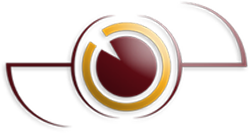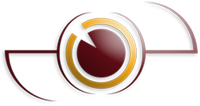Diabetic Eye Screening
Diabetic eye screening is a key part of diabetes care. People with diabetes are at risk of damage from diabetic retinopathy, a condition that can lead to sight loss if it's not treated.
Diabetic retinopathy is one of the most common causes of sight loss among people of working age.
It occurs when diabetes affects small blood vessels, damaging the part of the eye called the retina. When the blood vessels in the central area of the retina (the macula) are affected, it's known as diabetic maculopathy.
People with diabetes should also see their optician every two years for a regular eye test. Diabetic eye screening is specifically for diabetic retinopathy and can't be relied upon for detecting other conditions.
Why Eye Screening
Screening is a way of detecting the condition early before you notice any changes to your vision. Diabetic retinopathy doesn't usually cause any noticeable symptoms in the early stages.
If retinopathy is detected early enough, treatment can stop it getting worse. Otherwise, by the time symptoms become noticeable, it can be much more difficult to treat. This is why the NHS Diabetic Eye Screening Programme was introduced.
Everyone aged 12 and over with diabetes is offered screening once a year. Diabetic retinopathy is extremely unusual in children with diabetes who are under the age of 12.
The check takes about half an hour and involves examining the back of the eyes and taking photographs of the retina.
At Your Appointment
The screening appointment should last about 30 minutes.
When you arrive, the procedure will be explained to you. If you have any questions, ask the healthcare professional who is treating you.
You'll be given eye drops to enlarge your pupils, which takes between 15 and 20 minutes, and photographs of your retina will be taken.
There will be a flash of light each time a photograph is taken, but the camera won't touch your eye. Although the light is bright, it shouldn't be uncomfortable.
The eye drops may cause your eyes to sting slightly, and after about 15 minutes your vision will be blurred. You may find it difficult to focus on objects that are close to you.
Depending on the type of eye drops used, the blurring can last between two and six hours. You won't be able to drive home from your appointment, so you may want to bring someone with you.
After the screening procedure, you may also find that everything looks very bright. You may want to take a pair of sunglasses to wear afterwards.
Results
Within six weeks, both you and your GP should receive a letter letting you know your results.
After your eye screening photos have been studied by a number of different healthcare professionals, including someone who is trained in identifying and grading retinopathy, you and your GP will receive a letter informing you of the results.
The screening results may show either:
- no retinopathy
- background retinopathy – also called stage one retinopathy
- degrees of referable retinopathy – this means retinopathy that requires referral to an eye specialist for further assessment and treatment
You may need to have a further assessment if:
- the photographs aren't clear enough to give an accurate result
- you have retinopathy that could affect your sight and follow-up treatment is needed
- you have retinopathy that needs to be checked more than once a year
- other eye conditions are detected, such as glaucoma (a group of eye conditions that affect vision) or cataracts (cloudy patches in the lens of the eye)
If your results show no retinopathy or background retinopathy, you'll be invited back for another screening appointment a year later.
You can also reduce your risk of developing diabetic retinopathy in the future by controlling your blood sugar levels and blood pressure.
If screening detects signs that diabetic retinopathy or maculopathy is threatening your sight, you'll be given information about how far the condition has progressed. This will determine the type of treatment you receive.

